Embarking on a journey to trade school can be a transformative step toward a rewarding career. Your Path to Trade School Success: Start Here! outlines essential steps to help you navigate the admission process and choose the right program for your goals. Discover how to kickstart your career training and set yourself up for success in the skilled trades.
1. Understanding Trade School Benefits
Trade schools serve as specialized postsecondary institutions that equip students with essential technical skills tailored for specific careers. With a focus on job-specific training, these programs typically require fewer academic courses and can be completed in a shorter timeframe than traditional four-year degrees, often ranging from a few months to two years. Graduates can earn diplomas, trade certificates, or associate degrees, depending on their chosen program.
Affordability is a significant advantage of trade schools, as they generally incur less student loan debt compared to four-year universities. Many institutions offer financial aid options, including scholarships and federal loans, to support students. Additionally, trade schools often provide job placement assistance and maintain strong connections with local employers, ensuring that their curriculum aligns with industry standards and enhances graduates’ employability.
2. Identifying Your Career Goals
Identifying your career goals is a crucial step in navigating your professional journey. Understanding what you want to achieve can help you select the right educational path, whether it involves attending a trade school or pursuing other options. This clarity can guide your decisions and keep you motivated.
Trade schools often have less stringent admissions requirements compared to traditional colleges, making them accessible for many. Typically, applicants must be at least 17 years old and possess a high school diploma, GED, or equivalent. Some institutions may even allow enrollment for those without a diploma under specific conditions, broadening opportunities.
Standardized testing may be part of the admission process, assessing candidates’ skills in reading, writing, and math. This evaluation helps trade schools ensure that students are prepared for the rigorous, career-focused education they offer. Additionally, many schools provide both virtual and paper applications, streamlining the enrollment process.
Beyond education, trade schools often assist with job placement, connecting graduates with local employers. This support can be invaluable as you transition from education to employment, making it essential to identify your career goals early on. By aligning your aspirations with the right trade school, you can set yourself up for success in your chosen field.
3. Researching Trade School Options
When researching trade school options, the first step is to identify a technical school that offers the specific programs you are interested in. It’s essential to consider factors such as financial aid availability and job placement assistance, as these can significantly impact your educational experience and future employment opportunities. A well-rounded program can set you up for success in your chosen field.
Before applying, ensure you have a high school diploma or GED, as accredited trade schools require this for admission. The application process typically involves filling out a form that evaluates your background, education, and financial needs. Some schools may also require standardized tests like the COMPASS or Wonderlic, which help assess your readiness for the program.
Trade schools generally have a more accessible admissions process compared to traditional colleges, allowing students to balance work and education. Programs can vary in length, from a few months to two years, leading to diplomas, certificates, or associate degrees. Many institutions also provide job placement assistance, connecting graduates with local employers to facilitate a smooth transition into the workforce.
4. Meeting Admission Requirements
Trade schools generally require applicants to be at least 18 years old, although some institutions may consider younger candidates on a case-by-case basis. A high school diploma, GED, or proof of a recognized home school program is typically necessary. For those without a diploma, alternative career pathway programs (ACPP) may provide a route to admission through the U.S. Department of Education.
In addition to educational prerequisites, many trade schools require standardized testing to evaluate reading, writing, and math skills. Applicants might need to complete an entrance exam or skills assessment specific to their desired program. The application process often includes submitting supporting documents, such as transcripts, and may involve an application fee, personal statements, or letters of recommendation. Some schools also encourage campus tours or meetings with admissions counselors to enhance the application experience.
5. Preparing Your Application Materials
Preparing your application materials is a crucial step in the admissions process for technical schools. Candidates typically need to complete an application form detailing their educational background and financial aid needs. An interview with an admissions representative often follows, along with potential standardized testing. Supporting documents, such as transcripts and letters of recommendation, may also be required, alongside a personal statement. Additionally, applicants should be prepared to pay a nonrefundable application fee and possibly tour the campus to discuss their goals.
6. Navigating Financial Aid Opportunities
Navigating financial aid opportunities is crucial for students pursuing trade school education. Many institutions offer various forms of financial assistance, including scholarships, grants, and loans. By understanding these options, students can significantly reduce their educational expenses and focus on acquiring the skills needed for their future careers.
Completing the Free Application for Federal Student Aid (FAFSA) is an essential step in accessing government financial aid. Additionally, trade schools often provide job placement assistance, leveraging connections with local employers and industry networks to help graduates secure employment. This support can be invaluable in launching a successful career.
- Trade schools frequently offer financial aid to eligible students.
- Financial aid options include scholarships, grants, federal student loans, and private loans.
- Completing the FAFSA is vital for determining eligibility for government aid.
- Many trade schools assist with job placement for graduates.
- Institutions often have ties to local employers and industry networks.
7. Choosing the Right Program
When choosing the right program, trade schools present a practical alternative to traditional colleges, focusing on job-specific training with fewer academic requirements. Programs typically range from a few months to two years, culminating in diplomas, trade certificates, or associate degrees. This flexibility allows students to enter the workforce quickly, gaining valuable skills tailored to their chosen careers.
Enrollment in trade schools generally requires a high school diploma or equivalent, with some institutions accepting younger applicants. Many schools offer job placement assistance and maintain connections with local employers, enhancing graduates’ employment prospects. Additionally, financial aid options, including scholarships and federal loans, make trade schools an accessible choice for many students seeking to advance their careers.
8. Maximizing Your Trade School Experience
Maximizing your trade school experience involves engaging fully with the career-focused education offered, which aligns with industry standards and job market needs. Take advantage of job placement assistance and career services for resume building and interview preparation. With programs typically lasting eight months to two years and lower tuition costs, trade schools provide an affordable pathway to in-demand skilled trades careers.
In conclusion, embarking on your journey to trade school success begins with taking decisive action today. The sooner you apply, the quicker you can gain the skills needed for your desired career. If you’re considering the New Castle School of Trades or have any questions, don’t hesitate to reach out at 724-788-4417 or fill out the form on our website.



